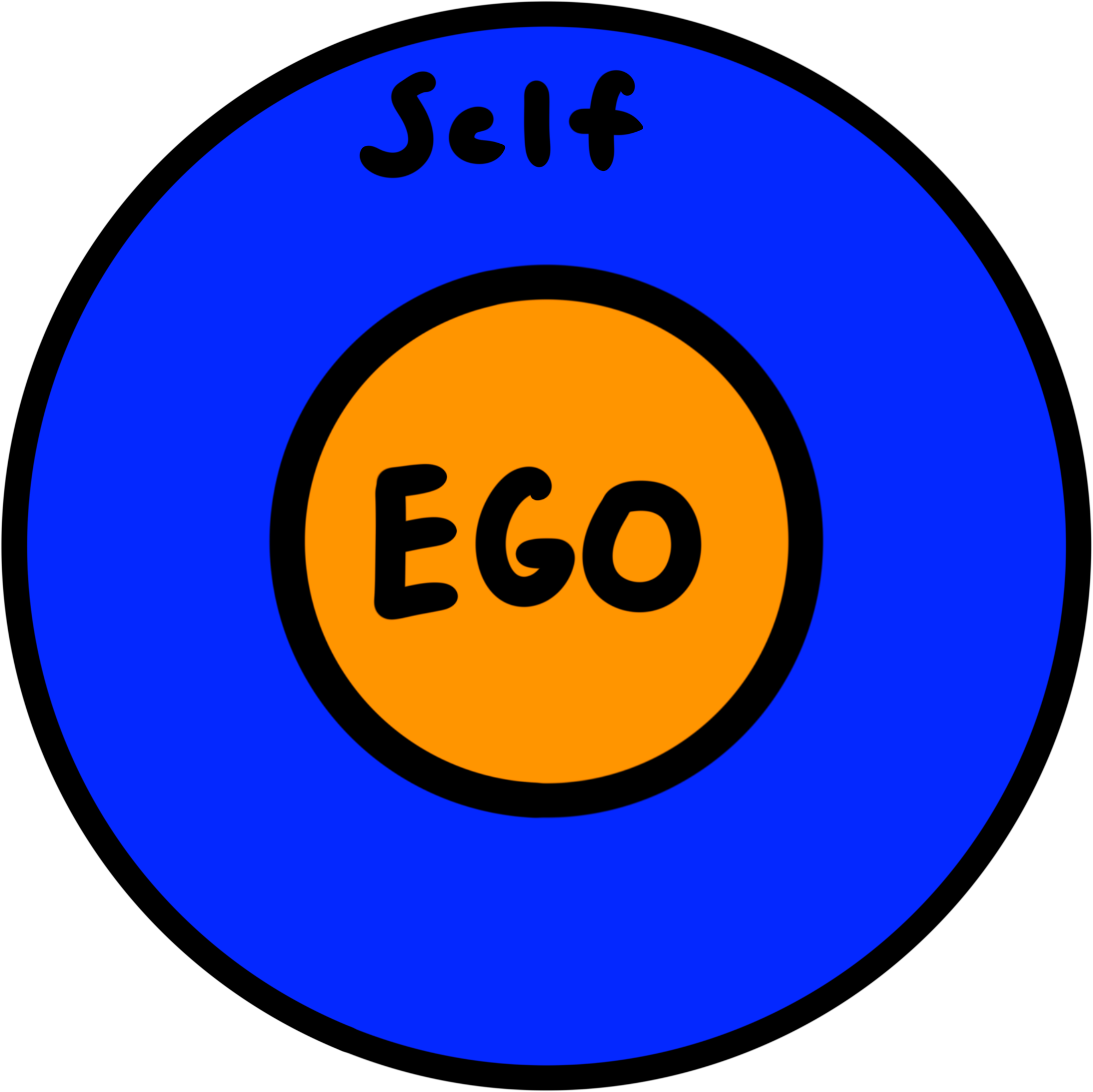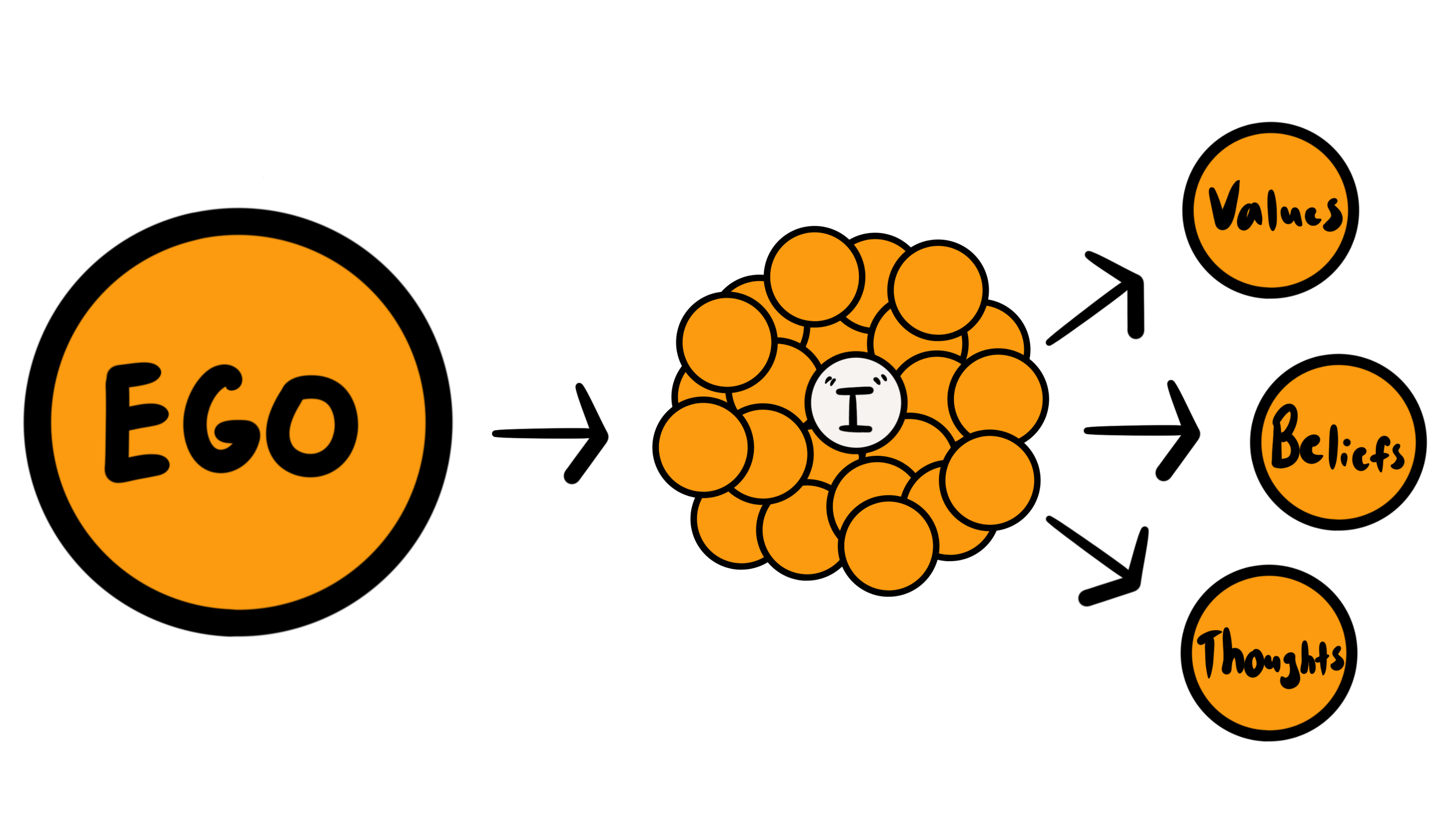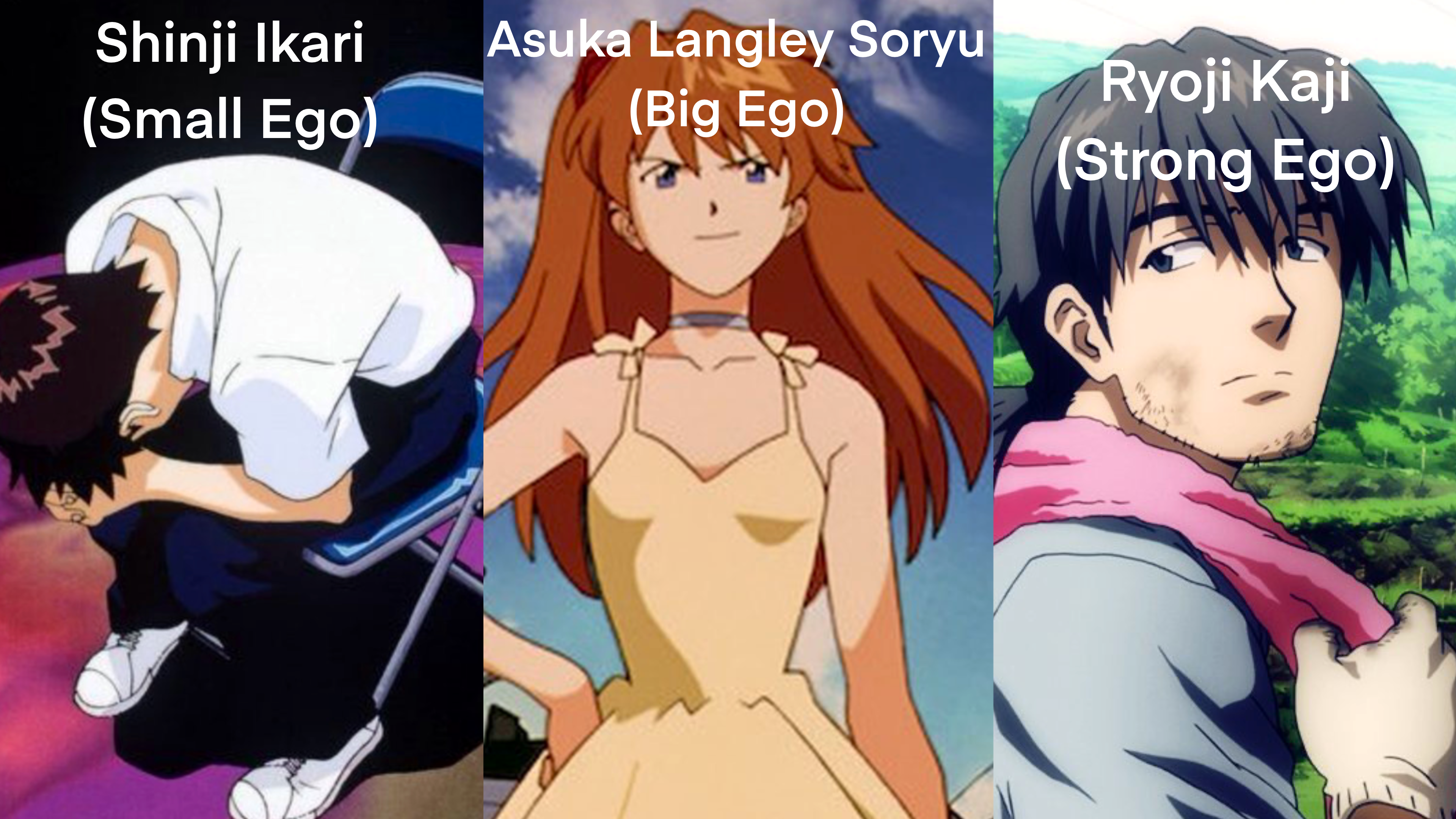The Ego

The concept of the human ego has been a discussion and debate since the dawn of man. By applying Jungian psychology, we can examine the ego using Jung's model.
Self-Ego Model

The Self is associated with Awareness (Simply Being) (Human Being)
The Ego is associated with Identification (Identifying with things)
The parts of you associated with identifying are your Ego
The parts of you associated with your being are your Self
Now the Ego is apart of the self, but it is not yourself or in other words yourself is not your ego. This is an important distinction to make because the ego is very good at tricking you into thinking that yourself is your ego, but it is not true. It may be true that the self encompasses the ego, but it is not the ego.
The Conscious & Unconscious Parts Of Yourself
The Unconsciousness are the things that are apart of yourself, but you're not conscious of. They can come out of you into the consciousness and then go back into the unconscious kind of like a wave.
The Personal Unconscious are unconscious parts that only pertain to you.
Collective unconscious are unconscious parts that pertain to all of us.
So there are all these things apart of yourself that you're not even aware of until they cross this dark boundary and pop into the psyche - into your awareness
You have to understand that your ego is built from the need to survive and reproduce. And in order to understand some of our more (hm) interesting behaviors we have to understand our ego and how it functions from that vantage point.
What The Ego Looks Like?

So we are going to take the Ego and break it up.
The Ego is made up of all these small circles or spheres which are all a combination of different thoughts, beliefs, and values that are all connected to the center. At the center of an ego there is this "I". This "I" is the identifier or a magnet. It simply starts identifying with things unconsciously or consciously. These things can be values, beliefs, experiences, but whatever they're it starts identifying with them.
When you're young you don't have many, but as you get older and more conscious and more aware the ego works more and more and your "I" identifites with more things.
So as you grow your Ego grows.
And so if you want to figure out what your "I" is identifying with then ask yourself the question: "Who are you?"
- Name
- Race
- Religion
- Gender
- Sexuality
- Job
- Hobbies
- Friends
- Family
- Relationships
- Interests
Now these are not really who you're they're just what your "I" is identifying with. It's pretty trippy. Our language is flawed. We're not really anything - it's more like we just identify things and we pretend we are them.
In fact, everytime a neuron is fired in your brain it can be seen as your "I" identifying with a particular thing. As electricity passes your neurons fire which keeps all these thoughts of who you're. It's a really beautiful thing - an interface, a map of who you are.
Through this very oversimplified process your brain builds up a map of the world. All those little nudges in your brain - those ridges - are neural pathways created through living an experience.
These little things that make up your ego are fixed in place. Your "I" doesn't like when they are separated so you fight hard to make sure they don't separate. Like protons in an atom. Protons do not want to be separated - they don't want to be moved. Your awareness - yourself - your being - is like an electron in that electrons are free moving. Your awareness can move almost anywhere while the ego is more fixed. The thing is your ego might not like where yourself goes. Anyone that has does hallucinogenic drugs knows that I am talking about. It can be hard to teach the ego that it is ok and there is nothing to worry about.
Ego Expression/Repression

A lot of emotional issues can occur when your ego-self model is out of balance.
Shinjii has a small weak ego. He feels constantly worthless and useless. He hates himself and is constantly doubting himself and his abilites. "I... I don't know if I can do this. What if I mess up again? What's the point of me being here? Why does anyone need me?"
Asuka has a big weak ego. She needs to constantly prove herself to others. She needs to be constantly seen as the best and one up everyone. "Of course, I'm the best pilot! It's obvious. You should all be grateful to have someone like me on your team."
Kaji has a strong mature ego. He knows what he wants and how to get them. He doesn't need to prove anything to anyone. He knows how to handle and solve problems that pertain to him without overly identifying or repressing his ego. "Life is full of complexities, but I've learned to navigate them. Confidence is key, my friends. You have to know who you are and what you want."
Too Much Ego Expression
If you express your ego too much and you associate with identifying more and more instead of just being you'll be over-identified. You'll be Prideful, Arrogant, and Overconfident. The truth is you're going to suffer really badly when things do not go your way. You'll be unable to account for problems that eventually arise, hence the term, Pride goeth before a fall.
Too Much Ego Repression
If you repress your ego too much you will not identify with anything. You'll hate yourself deeply and you won't be able to function in society because you hate certain parts of yourself so much. You'll have low self-esteem and low confidence. You will also suffer really badly because you won't have any positive thoughts about yourself.
Kill The Ego?
A lot of bullshit self-help people will tell you the Ego is the enemy and you have to kill it - NO. This is the worse thing you can do. You need to have an ego to survive in the world. Everyone has an ego. There is a reason we have it - life is hard and we need a strong ego to survive in it. You need to have positive ways to think about yourself. It's also fun to identify with things. I love identifying with things. Just be careful and warry with what you identify with and how much. Every identification has a consequence. And pain is an inevitable consequence with identifying with things. The more you identify the more pain you'll feel. However, if we practice identifying in a healthy way then we stand a chance at making it less painful and less harmful. Depending on what you identify with you might not suffer as much. As David Foster Wallace said "Everyone worships, but you get to choose what to worship and how you will see it."
A Strong Ego
You don't want a Small Ego or a Big Ego - you want a Strong Ego. It's kind of like your body. If it's too small or too big then it's too weak, but if it's just right then it will be strong.
Do not make the mistake of conflating a strong ego for a big ego - there is a very subtle difference. It is often the difference in True Confidence (Non-neediness) and False Confidence (Neediness).
Building a strong ego takes time and effort. It means being honest with yourself and others. It means finding out what you truly value in life and start making building it into your lifestyle. It's being emotionally mature and honest about things. It means making yourself more vulnerable and uncomfortable. And it can be really hard to do this. Most kids, teenagers and young adults have weak egos. It isn't until they've truly developed their personailites, their skills, their strengths, their value, their projects, their habits, and their friends they like until their ego starts getting stronger and more mature.
The Diversity of Ego's
Everyone's ego model is a little different. Everyone has different values, experiences, vulnerabilites, and situations. Some have big egos, some have small egos, some have strong egos and some have weak egos. Depending on how big, small, strong or weak your ego is, it will say a lot of different things about you.
